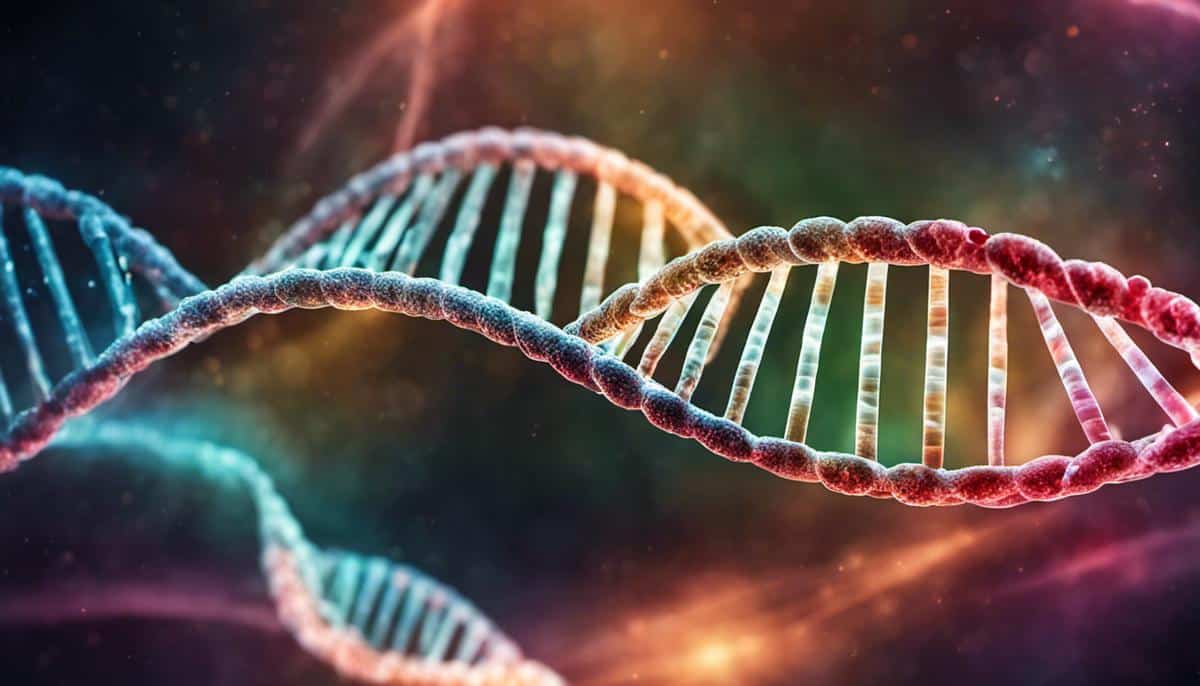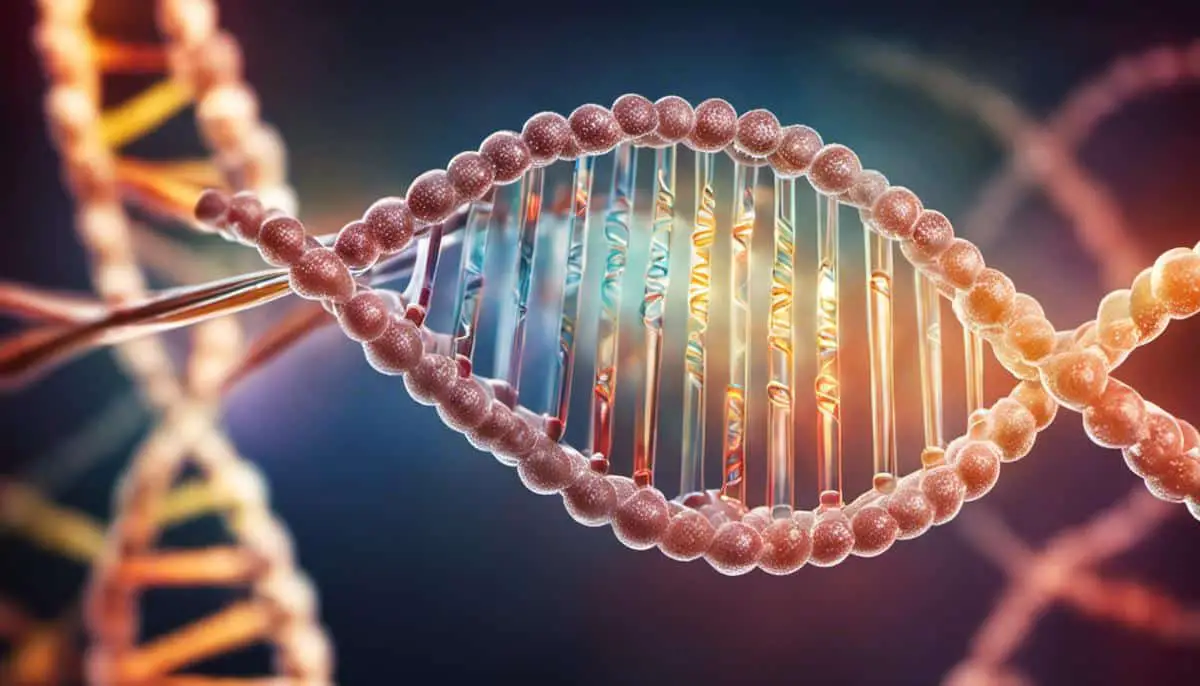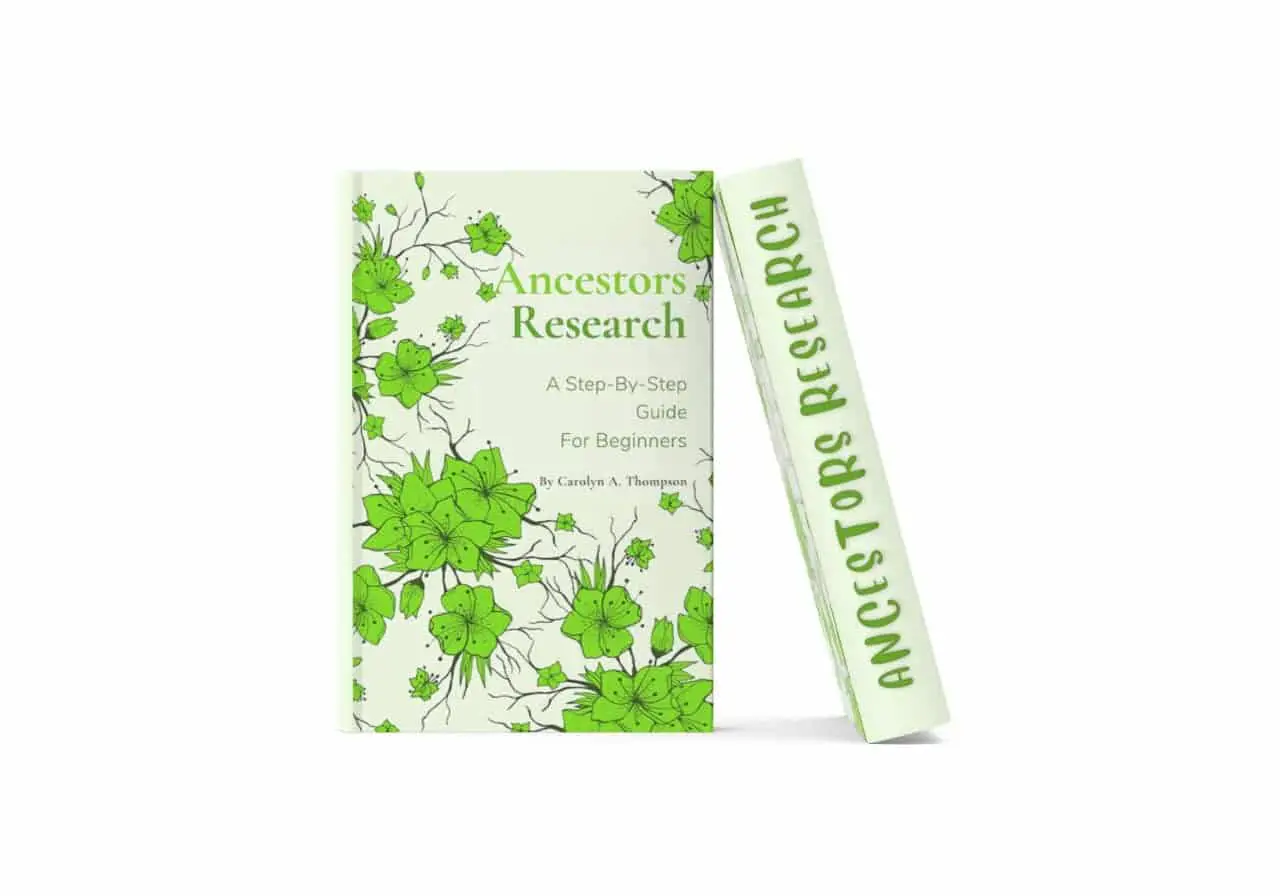The mystifying world of the DNA test is within everyone, playing a critical role in determining our genes, physical characteristics, and health patterns.
As technological advancements continue to make strides, DNA testing offers people an opportunity to gain a profound understanding of their genetic heritage and potential health risks.
This guide serves as a comprehensive resource to:
- Understand the foundation of DNA testing.
- Interpret your DNA test results.
- Trace your ancestry through biogeographical analysis.
- Understand how your DNA affects your health.
Brace yourself to navigate this exciting frontier of genetics and navigate through the tapestry of your life that DNA weaves.
Unlock the secrets of your ancestry! 🌿 Dive into our latest post to discover the best DNA testing companies that will bring you closer to your roots and help unravel the mysteries of your lineage.
Don’t miss the opportunity to find the most reliable and accurate services in ancestral DNA testing. Read the post now! 👉 “The Best DNA Testing Companies For Finding Ancestors”
Highlighting Premier DNA Testing Companies
| Company | Specialization |
|---|---|
| AncestryDNA | Genealogy and family history analysis. |
| MyHeritage DNA | Comprehensive genealogical research and ethnic databases. |
| FamilyTreeDNA | Advanced genealogical DNA testing. |
| Living DNA | Detailed regional and ancestry breakdowns. |
| SelfDecode | Personalized health reports based on DNA data. |
| Find My Past | Family history records combined with DNA testing. |
Understanding The Basis Of DNA Testing
Navigating the Intricacies of DNA Test Results and Their Scientific Foundations
Introduction to DNA Testing
Embarking on the journey of understanding DNA testing reveals the marvels of applied sciences.
This realm is not just about DNA test results; it’s about exploring the scientific principles that make these results meaningful.
The Significance of DNA
DNA is life’s blueprint. Unique DNA sequences in every individual, except identical twins, elevate the precision of DNA testing.
This uniqueness in DNA test results enables precise identification and relationship determination among organisms.
DNA Extraction
DNA extraction is a pivotal initial step. In this process, the isolation of DNA occurs from various cells, ensuring the foundation for accurate DNA test results.
The versatility of this process allows the use of different samples, such as buccal swabs or blood.
Quantification and PCR Amplification
After extraction, quantification follows. Here, the focus is on determining the DNA amount extracted, a critical aspect that influences the accuracy of DNA test results.
Following this, PCR amplification magnifies small DNA segments, enhancing the testing process’s precision.
STR Analysis and Electrophoresis
STR analysis and electrophoresis further refine the DNA test results.
STR analysis focuses on the variations in DNA that are essential for differentiating between individual profiles.
Electrophoresis then categorizes these differences, paving the way for detailed and organized DNA test results.
Conclusion: The Dynamic Basis of DNA Testing
Understanding the basics of DNA testing is not static; it evolves, ensuring that DNA test results remain profoundly accurate and informative.
A continual embrace of advancements and fresh perspectives enriches the realm of DNA testing, making it a testament to human curiosity and ingenuity.

Photo by _louisreed on Unsplash
Reading and Interpreting DNA Test Results
Interpreting Your DNA Test: A Comprehensive Overview
DNA testing, a seemingly intricate realm of science, has become an invaluable tool in the diverse fields of forensic science, anthropology, medical genetics, and genealogical research.
As laypersons, we may often find ourselves perplexed by the labyrinthine web of data that these tests provide.
While the PCR amplification and STR analysis garnered from electrophoresis drive the extraction process, the real challenge is often deciphered in the interpretation of these results.
A detailed understanding of the components of the DNA report can assist us in comprehending the power of the genetic ties that bind us together.
- Firstly, it’s essential to appreciate the concept of tutelary alleles.
- These are variations in genes that are transmitted from parents to offspring, making you uniquely you.
- The number of times the STRs repeat themselves on these alleles aids in distinguishing one individual from another.
- This differentiation is what makes forensics possible, as it allows for unique identification.
Secondly, unpackage the understanding of haplogroups.
These bands of genetic brothers and sisters bound by a common paternal or maternal ancestor give valuable insights into our migratory ancestors and their historical path through the ages.
Upon analyzing DNA test results, inferences can be drawn regarding ancestral geography, highlighting the migration patterns of our forebears.
Additionally, Single Nucleotide Polymorphisms (SNPs) deserve distinct attention.
Acting as biological markers, SNPs can help researchers locate genes associated with specific diseases.
When examining DNA test results, the identification of specific SNPs can point toward the susceptibility to certain inherited conditions.
Thus propelling the field of predictive and preventive medicine into novel realms.
Then there’s the mitochondrial DNA (mtDNA) – the genetic material inherited solely from one’s mother.
Coupled with the Y-chromosome results from paternal ancestry, these markers direct the individual’s rich ancestral journey.
Understanding these markers can decode maternal lineage, offering an intimate window into human history and evolution.
Furthermore, genetic ethnicity estimation, a captivating feature of commercial DNA test results, provides an approximate breakdown of one’s historic ethnic origins.
This estimation, while only a ballpark figure, can unveil fascinating narrative threads of cultural heritage, providing a deeper understanding of one’s identity.
Finally, a word of caution is warranted. The world of genetics is teeming with variety and variance.
Discrepancies can and do occur.
The mysteries inherent in DNA are vast and complex, rewarding in-depth study with ever-deeper layers of understanding.
In conclusion, decoding DNA test results reveals a hidden narrative within every cell.
This narrative intricately connects our identity, ancestry, health, and historical evolution.
Embracing this knowledge can yield rich rewards, connecting us to our past and potentially unlocking secrets to our future health and well-being.

Biogeographical Analysis and Ancestry Results
Building upon the discussed topics regarding DNA testing, it is critical to delve into the intricacies of how the resulting DNA data reveals information about an individual’s ancestry.
The entirety of this process is fairly complex, hinging on specific allele types, haplogroups, Single Nucleotide Polymorphisms, and chromosomal DNA.
Tutelary alleles are invaluable in their capacity for unique identification.
Serving as the guardians of genetic material, they carry specific sequences that mark the uniqueness of every individual.
When these alleles are analyzed, they offer an informative perspective on a person’s genetic lineage and kinship ties.
Furthermore, these alleles potentially hold the key to unearthing hidden fragments of an individual’s ancestry.
Haplogroups add another layer of understanding to ancestry.
They are clusters of similar haplotypes that share a common ancestor with a specific single nucleotide polymorphism mutation.
Their primary significance lies in their ability to trace the migration path of an individual’s ancestors.
By studying haplogroups, researchers can effectively map out the migratory route of our forefathers, thus offering valuable insights into human lineage and evolution.
Role of Single Nucleotide Polymorphisms (SNPs)
Appreciating the role of Single Nucleotide Polymorphisms (SNPs) is essential to understanding the complex genetic orchestration.
SNPs are mutations at a single point in the DNA sequence and they represent the most abundant type of genetic variation within populations.
These tiny variations have monumental implications for individuals by influencing variation in traits and disease susceptibility, thus linking personal ancestry with medical predispositions.
The exploration extends to analyzing mitochondrial DNA (mtDNA) and Y-chromosome details, which are instrumental in decoding maternal and paternal lineages, respectively.
While mtDNA remains relatively unchanged as it passes down the maternal line, the Y chromosome provides a record of paternal lineage.
Genetic ethnicity estimation holds the baton in the final leg of this journey. Embracing innovative algorithms and expansive reference populations, it presents an intriguing view of an individual’s historic ethnic origins.
Surveying vast genetic landscapes, these estimations serve to connect a person with ancestral homelands, marrying identity with the echo of generations past.
However, it’s important to tread cautiously for these tests bear complexities and potential discrepancies. DNA testing is an interpretative art as much as it is a precise science.
Lateral inheritance, genetic shuffling, and uncertain mutation rates can obfuscate genetic readings. Regardless, genetics reveal a fundamental truth of our shared story.
Describing the decoding of DNA test results as rewarding would be an understatement.
It’s a process that offers an intimate connection to our identity, ancestry, health, and the broader strokes of historical evolution.
Such findings often serve as the essence binding an individual’s past, present, and future, allowing a profound appreciation for the journey of human existence.
This process unfurls a fascination within many, inspiring further exploration into the intricate latticework of life’s blueprint—our DNA.

DNA Test Results and Health Interpretation
As we dive deeper into the realm of genetic insight, it becomes imperative to understand the critical implications DNA test results have for assessing individual health.
By unraveling the mysteries embedded in these biological blueprints, we can gain valuable insights into an individual’s susceptibility to various diseases and conditions.
Decoding this layer of human complexity is a task that is both stimulating and enlightening.
A key element in understanding the health implications of DNA test results lies in the exploration of predispositions toward certain medical conditions.
For example, hereditary genetic disorders such as cystic fibrosis, Tay-Sachs disease, and sickle cell disease can be identified through DNA testing.
Such knowledge can inform individuals about possible lifestyle adjustments, proactive preventive measures, tailored medical care, or even the need for genetic counseling.
Essentially, these tests provide a personalized overview of one’s health, informing the prevention, delay, or management of diseases—a forefront advancement in the field of genetic science.
DNA test results also shed light on the intricacies of pharmacogenomics.
A granular understanding of how our genetic makeup impacts drug metabolism can lead to the implementation of personalized medication plans tailored to our unique genetic profile.
This could dramatically enhance the efficacy of medical treatments and minimize potential side effects, leading to the golden age of personalized medicine.
Examining the entire landscape of personal genomics, it becomes apparent that DNA testing provides an incredible opportunity for detecting potential cancer predispositions.
Genes like BRCA1 and BRCA2, known to be associated with an increased risk of breast and ovarian cancer, can be tested for potentially harmful mutations.
Such insights allow individuals to make informed decisions regarding preventive and preemptive measures, reinforcing the gravity of DNA testing in preventative health maneuvers.
While delving into the vast complexities of genomics, it is essential to acknowledge the ethical and psychological implications of DNA testing.
Genetic information is deeply personal and can come with psychological stress, particularly when a predisposition to severe health conditions is identified.
Maintaining a thorough understanding of genomics’ multidimensional aspects is essential.
This includes areas from scientific discovery and human behavior to ethical policies, underscoring the field’s dynamic nature.
By intertwining the factual architecture of genomics with a compassionate understanding of its implications, we pave the way for a well-guided future.
This approach allows individuals to make informed health decisions, leading to personalized care protocols that resonate with their unique genetic makeup.
DNA testing elucidates the refrain of our existence: every human genome is a masterwork of nature, an intricate weave of biology and destiny.
In the panorama of genetic studies, we are but at the beginning of a journey that holds endless potential and promises the dawn of remarkable breakthroughs.
Our understanding of DNA test results and their health implications progresses with every stride in this captivating symphony of science.

Genetic information is potent and can provide significant insights about ourselves and our ancestry.
Having the skills to comprehend your DNA test results can be empowering, whether it is about getting in touch with your roots through biogeographical analysis or understanding your genetic predisposition to certain health conditions.
However, as we demystify our DNA, it is crucial to remember that while DNA testing provides valuable information, it does not paint a complete picture of our identity or definitive predictive power over our health.
Having the skills to comprehend your DNA test results can be empowering, whether it is about getting in touch with your roots through biogeographical analysis or understanding your genetic predisposition to certain health conditions.
Our genes interact with our environment in complex ways, and learning to interpret DNA results should be the first step toward a journey of genetic enlightenment.
Frequently Asked Questions (FAQ)
What role does the architecture of genomics play in health decisions?
The architecture of genomics provides a factual foundation, helping individuals make well-informed health decisions based on their unique genetic makeup.
How does a compassionate understanding of genomics influence its implications?
A compassionate understanding allows for a more humane approach, considering the emotional and ethical aspects, making genomics more relatable and applicable.
How does understanding genomics guide individuals toward a future of personalized care?
Understanding genomics enables the creation of personalized care protocols, aligning medical approaches more closely with individual health needs and genetic predispositions.
What are the key components in guiding individuals to informed health decisions through genomics?
The key components include a solid foundation in genomic facts and a compassionate approach toward understanding its broader implications.
How does the integration of genomics knowledge influence personal healthcare protocols?
The integration of genomics knowledge allows for the tailoring of healthcare protocols, ensuring that they are personalized, relevant, and effective based on one’s genetic information.





